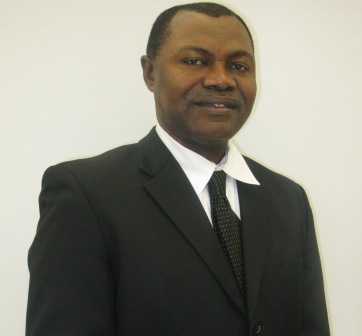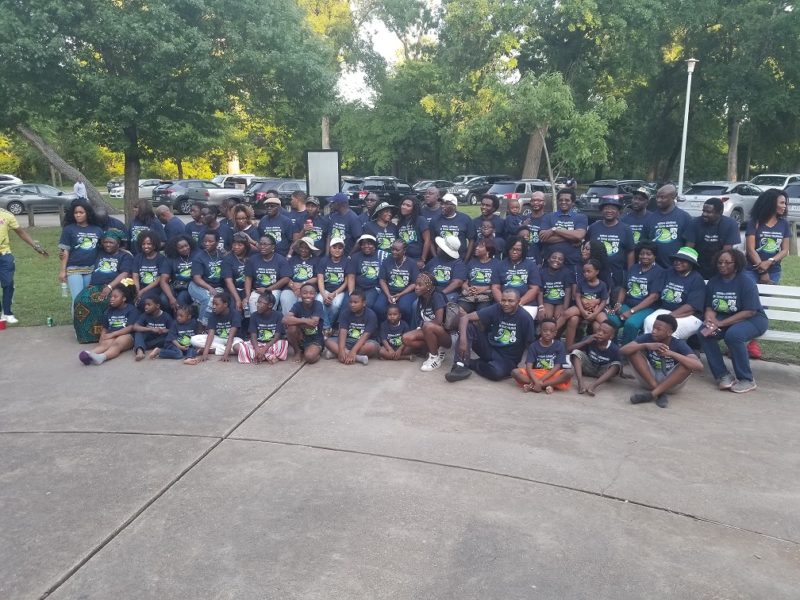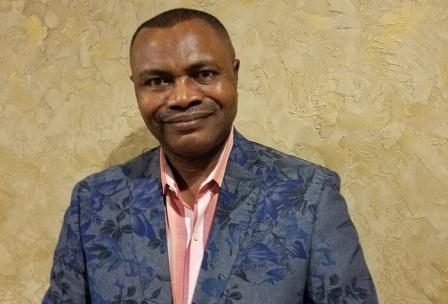Sierra Leone Diaspora Journalists: What are our challenges?
Texas, USA: December 25, 2013 – The extensive work undertaken to produce freedom of the press was made possible by the present administration and the contribution of local journalists and journalists in the diaspora who have implemented strategies for effective changes in our society. The change is with the diaspora journalists who have a duty to raise awareness on Sierra Leoneans living abroad to contribute in the socio-economic development of our country. Misrepresentation and party politics has been a climactic issue in the democratic development of Sierra Leone. The government of Ernest Bai Koroma has done well in making journalists function effectively, it is up to us to deliver facts, verified attributed sources, and motivate people about what is right and what is wrong. (Photo: Sanpha Sesay, author)
As we are almost half way in the second decade of freedom since the end of the brutal war in 2000, journalists in our country have accomplished at least 80% of press freedom in Sierra Leone. Before and during the war, journalists were constantly working in environment replete with oppression, corruption, violations of press freedom, lack of respect from politicians, and an inability to engage in collective bargaining. After the war, we have assumed a better freedom but are faced with the challenges of sustainability and monitoring a healthy democracy. We have played a big role in contributing to greater accountability, good governance, good citizens, and economic development.
Many of us fled the country during the cause of the war and have engaged in different careers. Some are very active in politics aiming to become statesmen. Some decided to be silent in public but active in the dark. Many have faced unavoidable ill fortune during the war. For those of us who survived the war, we are faced with the challenges of rebuilding and creating new innovation to achieve the millennium goal. We have to use our knowledge and establish a framework for social dialogue among media management, government, and unions to provide collective agreements and protections for social rights to every Sierra Leonean.
According to Freedom House’s Freedom of the Press Index, only 14.5% of the world’s citizens live in countries that enjoy a free press, but I am sure Sierra Leone is among the 14.5% of the countries that enjoy press freedom. There is a press freedom now with dramatic change in the country. The question is that, is it going to be sustainable? Yes! By eliminating bias from our minds, changing our attitudes, and engaging in collective bargaining. We have to believe that the future of our country should be explored through contributions of the media role; the particular role in holding accountable not only the government, but everyone who served the country in an unfair way. We have to adapt to new ways of covering development issues as being the ears and eyes of society and the voiceless through button-up and button-down reporting, then we will accomplish our utmost goal.
In a context of increasingly diverse news sources and the expanding means of political communication, Journalists back home are doing a great job. Their effort may decline if they are not getting support from us in the diaspora. As stakeholders in the transnational Sierra Leone media landscape, there are many ways we in the diaspora can render support to colleagues back home.
Most importantly, we have to collaborate with them in major issues that need to be addressed by government, civil society, and other policy actors so that we in the diaspora, in the broad range of dissemination can inform and educate people around the world about the current affairs of our country. Secondly, we in the diaspora need to build a coalition that will look like a pressure force and create a fundraising effort to support the Sierra Leone Association of Journalists (SLAJ) with logistics and finance to enhance media houses for objective reporting. Thirdly, SLAJ and Diaspora journalists should create a networking system by establishing an online discussion forum where pro-government journalists, anti-government and independent journalists can meet to challenge issues. The website could be facilitated by a diaspora branch. Who will lead this laudable goal?
What is specifically necessary for us to do in our various destinations in the diaspora is very critical. In the first place, we have to use our influence by informing big economic powers and donor agencies about the daunting problems that rage in our country. It is our responsibility to cry to the world about problems such as electricity and water supply, so that people will come to our aide. The Western world respects journalists therefore, our news reporting could create a positive impact if we keep reporting about our difficulties that need external help.
We have press freedom now, but I do not believe in portraying negative images about our country in the world in the name of freedom of the press. Many people, not only journalists, do air out negative messages to the world based on their political party sentiment that prompts them to fight against the government. We will look funny to the world when people go on Facebook and on other mediums to read unfavorable messages about our country. There is no doubt that the present administration is doing better but the people of Sierra Leone have a long way to go. Dr. Kandeh Yumkella has said it all in his great speech at the Dinner Bank Complex. He was able to inform us about the success breed during the past decade where he made an official recognition on Ernest Bai Koroma’s success in rebuilding. Dr. Yumkella enumerated what he described as “Score Card 2007 – 2012” for the country as enormous accomplishment by the Ernest Koroma administration. Who can dispute that? I believe every journalist has the right to belong to a political party but, the choice is to report objective and to an extent be a patriotic journalist.
As journalists, our challenges are critical by telling people the burning issues of the day but, I think the stories we write influence the way people think and how people do their thing. We should not relent in informing, educating and entertaining our people. I know that there are minor, if at all any threat of fear, intimidation, violence, and insecurity for our colleagues back home. We in the Diaspora have not experienced any of this; therefore we must work to maintain the integrity of our profession. We must always try to build a coalition between civil society, and our profession should be developed to help ensure a stronger relationship of engagement. We have all the resources and freewill to accomplish our goals in ensuring that our country is monitored at all levels to avoid serious social, political, and economic problem.
Merry Christmas and Happy New Year in advance to all.
The next issue will be about New Year resolutions. I hope big journalists across the globe will respond by stepping up to establish an international journalist association, call it any name.
By Sanpha Sesay, The Texas Chief
Stay with Sierra Express Media, for your trusted place in news!
© 2013, https:. All rights reserved.





